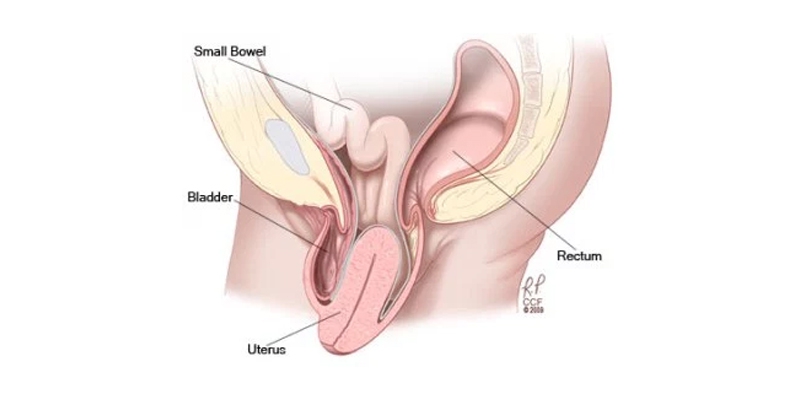Prolapse Management
Pelvic organ prolapse or Prolapse is a condition that often may not cause any symptom. It is essentially a condition in which one or more of your pelvic organs may bulge into the vagina. A prolapse can occur at any time and any age. There are types of prolapse, which differ according to which organ is affected and of varying degrees that may be staged from 1 to 4 with 4 indicating a severe prolapse. Depending on the condition, the right prolapse treatment may be prescribed. It is important to note, though, that when this condition is detected early, it can be treated non-surgically. Thus, it is essential that you take the advice of your doctor at the earliest if you feel that you may be suffering from this condition.
What is Prolapse All About?
In women, a prolapse refers to the pelvic organs bulging into the vagina. This may be an anterior prolapse (cystocele), where the bladder bulges in the front part of the vagina; or a prolapse of the uterus and cervix on top of the vagina or posterior wall prolapse (rectocele or enterocele) where the bowel bulges into the vagina. Prolapse is caused by a weakening of tissues that support the pelvic organs. Though there is rarely any one cause, there are conditions that predispose to it developing, such as older age and the onset of menopause, being overweight, having had a previous difficult labour and delivery, a previous hysterectomy, doing manual work that involves straining and chronic constipation. Pregnancy hormones can cause ligaments to stretch and relax, and the extra weight during labour and delivery can strain the pelvic floor and weaken it.
Symptoms of Prolapse
The symptoms associated with a prolapse vary, depending on how severe it is. If it is a minor prolapse, it is not noticeable. However, a severe prolapse can cause symptoms that include:
- Lump or a bulge in the wall of the vagina which may need to be pushed back in severe cases
- Dull lower back pain
- Discomfort or aching in the pelvic region
- Constipation
- Sexual problems
- Urinary stress incontinence
- Prolapse Treatment
- loss, and pelvic floor exercises are recommended in mild cases.
In severe cases, a prolapsed uterus surgery is required that will correct the defect that resulted in the prolapse. It is a relatively simple procedure in which a gynaecologist will make an incision in your vagina and stitches are placed so that the support that is provided by the pelvic floor muscles to the pelvic organs is improved. Surgery may also involve a hysterectomy in some cases, especially where the uterus has prolapsed out.
Can a pelvic prolapse be prevented?
Lifestyle changes will help to avoid a prolapse. Maintain a healthy weight, exercise regularly, do pelvic floor exercises and avoid smoking. Prevent constipation with a high fibre diet that includes adequate water and avoid heavy lifting.

